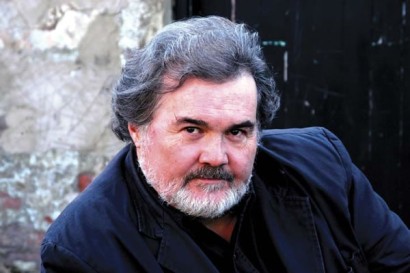 MLF Chapter & Verse
MLF Chapter & Verse
The Manchester Literature Festival Blog
Review: The Art of the Short Story
Young Digital Reporter Jack Clare went along to The Art of The Short Story with Sean O’Brien and Frank Cottrell Boyce and wrote a post about the event…
This event was one of a serie, in promotion of a new book called Morphologies (a reference to Propp’s Morphology of the Folk Tale). It contains a series of essays, each by a modern short story writer, about one of the past masters of short story writing. At the event I attended it was the turn of Sean O’Brien and Frank Cottrell Boyce to talk about Poe and Chekhov respectively.
I’ll admit that I had never heard of Sean O’Brien (pictured) prior to this event, which is a surprise considering that he is a much lauded poet (winner of the T.S Eliot prize and the E.M Forster award). I thoroughly enjoyed his talk about Poe, touching on various points in the writer’s career; on his failures (The Oval Portrait) and his successes (The Man of the Crowd). The part of the speech which stayed with me though was the irony that most of Poe’s stories contain nothing of normal life, e.g. work or family, and yet in real life these were the things he were struggling to sustain. However, O’Brien remarked that he never descended to level of the hack, even in the face of such hardship.
Frank Cottrell Boyce’s speech was very different. Where the essay on Poe felt more like a serious work of criticism, Boyce’s was more personal. He took a single Chekhov story called Gusev and tied it up with a rather touching story drawn from his own family history. His grandfather was born with a caul on his head, which is a piece of the amniotic sac. A superstition of the time was that if you were born with a caul on your head then you would never drown. In adult life he then became a stoker on boat, and died at sea. However, he didn’t drown. He was burned alive by the furnace, which is both tragic and singular proof that the universe probably has a sense of humour. This links to Gousev because the story is about a sailor who is cast into the ocean by his fellow shipmates after his presumed death. It begins as an argument between Gousev and another sailor, who over the course of the story come to stand for two seperate ways of viewing life, and then once he falls into the ocean the story shifts. It becomes a kind of prose poem in which Gousev’s body is followed into the ocean and then traces his journey through the food chain. Boyce had felt an instant connection to this story because it reminded him of his grandfather. He also compared Chekhov to The Simpsons, saying that both had this distinct sense of unpredictability and the ability to subvert your expectations; he said that it feels as if not even Chekhov knows where the story is going.
The evening was a wonderful success. It succeeded in making me want to read Chekhov and Poe and also in selling me a copy of Sean O’Brien’s short story collection The Silence Room, which I would highly recommend.
